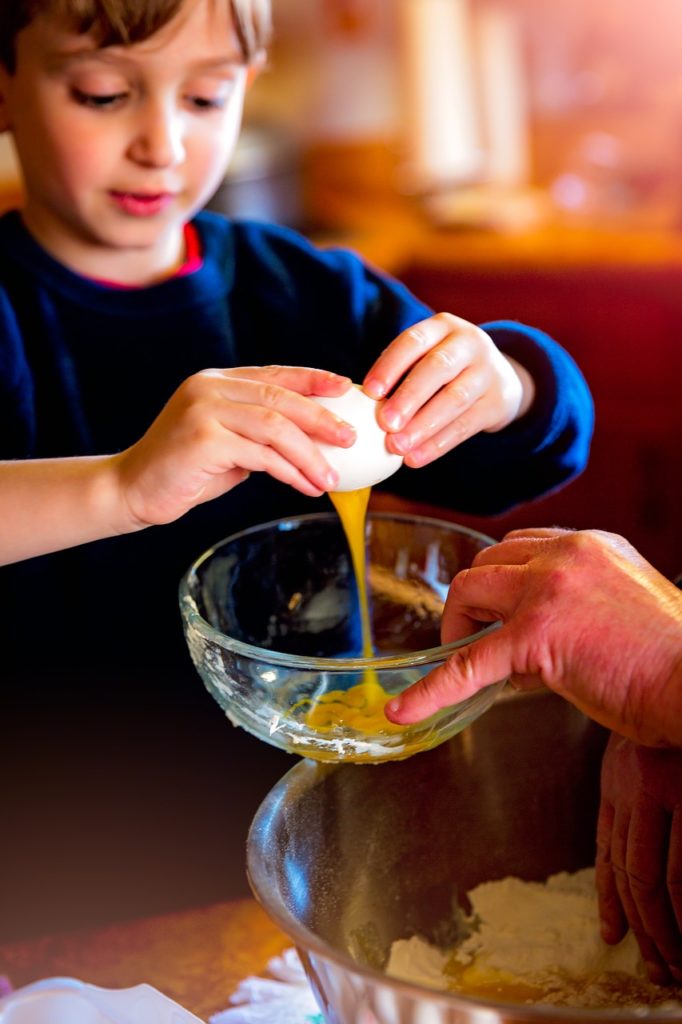Incredible Egg Recipes

The Incredible Edible Egg offers great recipes to enjoy eggs for breakfast, lunch, dinner or snacks.

Cooking and Preparing Eggs
Check Egg Answers for questions like cooking temperatures, safe use of eggs with cracks and handling leftovers.



On the picnic table
- Leave raw or hard-cooked eggs in shells.
- Pack eggs and cold egg dishes in an insulated bag or cooler with ice or freezer packs.
- Place cooler in shade. Open infrequently to keep eggs at ≤40° F. Use thermal coolers to keep hot egg dishes at ≥140° F.
- When refrigeration is not available, buy dried eggs and reconstitute with purified water.

On the counter
- Refrigerated eggs should not sit out more than two hours.
- When in doubt, throw them out!
- Discard egg cartons in the trash and do not reuse.
- Discard shells after use. Do not leave in carton.
- Separate foods like raw meat, seafood, eggs, and poultry to prevent cross-contamination.
- Wash hands, utensils and surfaces with warm, soapy water before and after handling raw eggs.

On the stove
- Adequate cooking destroys any bacteria present.
- Cook eggs until white and yolk are firm.
- Egg white = 144-149° F, egg yolk =149-158° F, whole eggs 144-158° F

In refrigerator
- Store in their carton for access to Julian and sell-by dates
- Place carton in coldest area, not in the door
- After eggs are refrigerated, they must stay cold
- If eggs crack in carton, break into a clean container, cover tightly, keep refrigerated, and use within two days
- Refrigerate egg-containing leftovers promptly
- Reheat leftovers and eat within two to three days.
Safe, Nutritious Eggs - Hen to Home
Storing Eggs
Storing Eggs Store eggs in the coldest area of refrigerator (not the door!) and in their original carton to be able to check the Julian and sell-by dates. Eggs may be refrigerated for up to five weeks, and frozen for up to one year. If an egg cracks in the carton, break it into a clean container, cover tightly, keep refrigerated, and use within two days.
Handling Eggs Safely
Before and after handling eggs, wash hands, utensils and surfaces with warm, soapy water. Do not wash eggs, as they have been properly sanitized before packing. Separate eggs from raw meat, seafood, and poultry to prevent cross-contamination. Do not leave eggs out more than two hours, as a cold egg left at room temperature can sweat, which may cause bacteria growth.
Cooking Eggs
Cooking eggs thoroughly - until the white and yolk is firm - is extremely important to destroy any bacteria present. Egg white coagulates at 144-149° F, yolk coagulates at 149-158° F and whole eggs at 144- 158°. Find cooking tips on special egg dishes, like poached eggs, hard-cooked eggs, custards and meringues, here.
